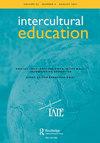The role of colleges for advanced studies in Roma undergraduates’ adjustment to college in Hungary from a social network perspective
IF 0.8
Q3 EDUCATION & EDUCATIONAL RESEARCH
引用次数: 0
Abstract
ABSTRACT Adapting to the expectations of educational institutions can be difficult for any students, but it is particularly difficult for disadvantaged, first-generation college students with a minority ethnic background. Our case study, employing a social network perspective, examines the role of small peer-communities in the academic adjustment of underrepresented minority students, namely Roma young people in Hungary. Using a social network approach, the study aims to evaluate what the exact role of ‘colleges for advanced studies’ communities is in the everyday life of Roma students, characteristically first-generation intellectuals, and how such communities contribute to academic adjustment. Furthermore, this study examines the main dilemmas concerning the operation of such colleges for advanced studies. The results show that institutions with fewer students and those operating in separate buildings (spatial segregation) provide an opportunity for much stronger connections and more interactions for the students. However, the analysis also showed that the predominance of RCASN ties may hinder the formation of host connections, and this way hampers the stronger bonding to the university.社会网络视角下的高等院校在匈牙利罗姆本科生适应大学生活中的作用
对于任何学生来说,适应教育机构的期望都是困难的,但对于弱势群体、少数民族背景的第一代大学生来说,这尤其困难。我们的案例研究采用社会网络的视角,考察了小型同伴社区在代表性不足的少数民族学生(即匈牙利的罗姆年轻人)的学术调整中的作用。利用社会网络方法,该研究旨在评估“高等教育学院”社区在罗姆学生(典型的第一代知识分子)日常生活中的确切作用,以及这些社区如何促进学术调整。此外,本研究亦探讨了高等教育院校运作的主要困境。结果表明,学生较少的机构和那些在单独的建筑(空间隔离)中运营的机构为学生提供了更强的联系和更多互动的机会。然而,分析也表明,RCASN关系的优势可能会阻碍宿主连接的形成,这种方式阻碍了与大学更强的联系。
本文章由计算机程序翻译,如有差异,请以英文原文为准。
求助全文
约1分钟内获得全文
求助全文
来源期刊

Intercultural Education
EDUCATION & EDUCATIONAL RESEARCH-
CiteScore
2.30
自引率
8.30%
发文量
36
期刊介绍:
Intercultural Education is a global forum for the analysis of issues dealing with education in plural societies. It provides educational professionals with the knowledge and information that can assist them in contributing to the critical analysis and the implementation of intercultural education. Topics covered include: terminological issues, education and multicultural society today, intercultural communication, human rights and anti-racist education, pluralism and diversity in a democratic frame work, pluralism in post-communist and in post-colonial countries, migration and indigenous minority issues, refugee issues, language policy issues, curriculum and classroom organisation, and school development.
 求助内容:
求助内容: 应助结果提醒方式:
应助结果提醒方式:


